Amor que Daña//Love that Harms
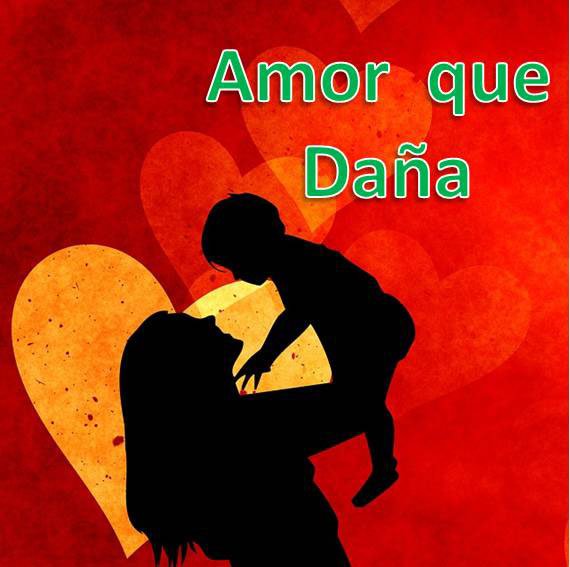
Para finales del siglo pasado se hablaba con insistencia de la llegada de los niños índigos o niños de cristal. Unos seres muy especiales con una gran conexión espiritual y que venían con la misión definida de transformar el mundo en un lugar mucho mejor pues serían seres celestiales de gran sensibilidad hacia el medio ambiente y el mundo animal.
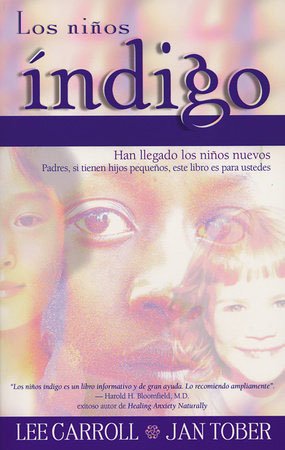
Una amiga, tuvo su bebé en el año 2001, antes de nacer ella decidió que su hijo sería un niño índigo y para ese momento ya había tomado el libro de Lee Carroll y Jan Toberlos – Niños índigo como manual de crianza, no puedo comentarles nada del libro pues en su momento no llamó mi atención, sin embargo, a medida que Raúl iba creciendo, manifestaba su carácter y mamá justificaba todo parque era un niño índigo.
Cuando digo todo es que el pequeño Raúl con sus 2-3 años, era un gran dictador: no dejaba hablar a mamá, la hacía irse de los sitios, a los cinco años la mandaba y ella obedecía, en el preescolar mamá con frecuencia recibía quejas porque el niño era abusivo con la maestra, los compañeros y le habían colocado la etiqueta de hiperactivo. Marina justificaba todo porque era un niño índigo y los demás no sabían cómo tratarlo.
Para esa época Marina decide irse con su hijo del país, en nuestras conversaciones me contaba cómo le iba de bien a Raúl en su nuevo mundo, aunque dejaba entrever que le costaba mucho adaptarse al medio educativo porque su inteligencia era superior y se aburría en extremo en las clases de música, inglés y las propias de la escolaridad.
Tuve la oportunidad de irla a visitar, ya Raúl tenía como nueve años, lo vi más amable y sociable, en ese día y medio que pasé con ellos solo un detalle llamó mi atención en el comportamiento del niño: cuando fue al baño armó un escándalo porque su mamá no iba rápidamente a asearlo.
Marina en el momento trató de justificarlo, sin embargo, ya conversando en la quietud de una larga noche me manifestó su preocupación por Raúl: sus faltas de hábitos saludables, era un niño obeso, no ayudaba en la casa, no tenía buen rendimiento en la escuela, aunque en esto último seguía insistiendo en el alto coeficiente intelectual del niño (detectado por ella porque nunca había ido a un especialista). Le sugerí que ambos buscasen ayuda con un psicólogo pero seguía insistiendo que Raúl era índigo y nadie estaba suficientemente preparado para comprenderlo.
Recientemente supe de ellos, no fueron buenas noticias, ella se encuentra bastante deprimida y el joven Raúl ya con más de 20 años, no estudia, no trabaja, sufre de antropofobia, (miedo a las personas) y mi amiga sigue sin buscar ayuda especializada.
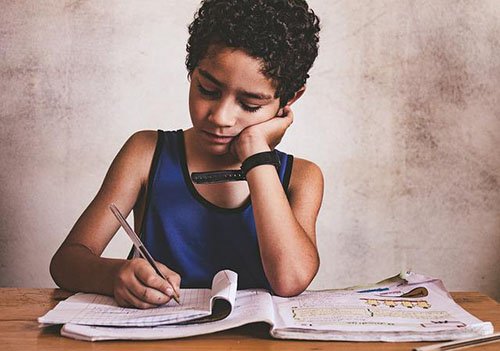
Esta historia está lejos de ser una ficción, la triste historia de Raúl se encuentra llena de episodios que pueden conmover a muchos, sin embargo, hoy no se trata de Raúl sino de su madre y una pregunta inquietante: ¿La historia pudo haber sido distinta?
Posiblemente si, y no voy a responsabilizar a una teoría que tuvo muchos seguidores en ese momento porque, a fin de cuentas, los padres somos en primera instancia los que determinamos como vamos a criar a nuestros hijos y les transmitimos nuestros valores, principios y creencias.
Hay un concepto que de entrada me resulta desagradable “madre castradora” y que se encuentra relacionado con ese “amor de madre” tan excesivo que ahoga al hijo y no le permite desarrollarse emocionalmente. Según la psicología, la mayoría de las veces es un proceso inconsciente fundamentado en el miedo de ser abandonada, por el hijo o la hija, en el futuro. De allí que, la madre, concibe al hijo como su propiedad y no propicia los espacios para su crecimiento integral.
En el caso de Marina, los indicadores son evidentes, jamás ha llevado ni ha ido ella en busca de una ayuda especializada, todos los diagnósticos parten de lo que ha leído por allí y basado en ellos ha ido confinando a su hijo en el único lugar donde ella puede tener “completo dominio”, el hogar.
Por otra parte, partamos del hecho de que todos somos seres especiales, seres de luz y que como padres queremos y deseamos que nuestros hijos desarrollen todos sus capacidades, pero atribuirle a los hijos, “más de lo que tienen” como por ejemplo, una inteligencia superior al resto de los mortales, es crearles unas expectativas que en algún momento se toparan con una realidad que les causaran frustraciones y si esto lo justificamos haciéndole creer que es el mundo el que no está en capacidad de entenderlo, los resultados pueden ser realmente dolorosos, pues es probable que en ningún lado encuentren su lugar.
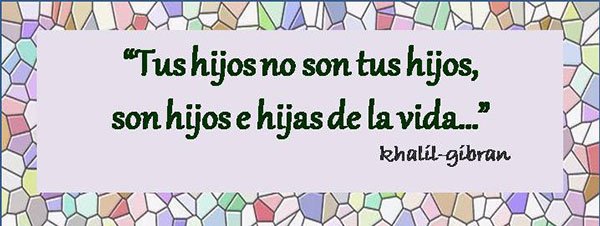
Aquí encajan muy bien los versos del poeta: “Tus hijos no son tus hijos, son hijos e hijas de la vida”. Como padres el amor a nuestros hijos pasa por el ser conscientes que somos responsables de formarlos para la vida, de darles las herramientas que lo lleven a integrarse y en ello encontrar sus caminos para ser felices, para sentirse realizados en lo que son y como son.
Nuestras expectativas, sueños, deseos, proyecciones con respecto a los hijos pueden que siempre estén presentes pero encaramársela a los hijos puede ahogarlos y no dejar aflorar su esencia, creándoles fuertes limitaciones para dejar salir lo que realmente tienen.

In English
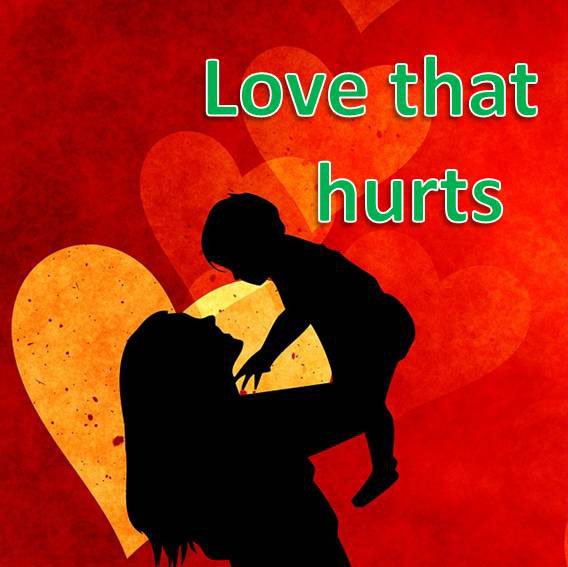
By the end of the last century there was insistent talk of the arrival of indigo children or crystal children. Some very special beings with a great spiritual connection and who came with the defined mission to transform the world into a much better place, as they would be celestial beings of great sensitivity to the environment and the animal world.

A friend had her baby in 2001, before birth she decided that her son would be an indigo child and by that time she had already taken the book by Lee Carroll and Jan Toberlos - Indigo Children as a parenting manual, I can not tell you anything about the book, because at the time it did not call my attention, however, as Raul was growing, he manifested his character and mom justified everything park was an indigo child.
When I say everything, I mean that little Raul, with his 2-3 years old, was a great dictator: he did not let mom talk, he made her leave places, at five years old he commanded her and she obeyed, in preschool mom often received complaints because the child was abusive with the teacher, classmates and he had been labeled as hyperactive. Marina justified everything because he was an indigo child and the others did not know how to treat him.
At that time Marina decided to leave the country with her son, in our conversations she told me how well Raul was doing in his new world, although she hinted that it was very difficult for him to adapt to the educational environment because his intelligence was superior and he was extremely bored in music, English and school classes.
I had the opportunity to visit her, Raul was about nine years old, I saw him more friendly and sociable, in that day and a half that I spent with them only one detail caught my attention in the child's behavior: when he went to the bathroom he made a fuss because his mother did not go quickly to clean him up.
Marina at the time tried to justify it, however, as we talked in the quiet of a long night, she expressed her concern about Raul: his lack of healthy habits, he was an obese child, he did not help around the house, he did not perform well at school, although in the latter she kept insisting on his high IQ (detected by her because he had never been to a specialist). I suggested that they both seek help from a psychologist, but she kept insisting that Raul was Indigo and no one was sufficiently prepared to understand him.
Recently, I heard from them, they were not good news, she is quite depressed and the young Raul, already over 20 years old, does not study, does not work, suffers from anthropophobia (fear of people) and my friend still does not seek specialized help.

This story is far from being a fiction, Raul's sad story is full of episodes that can move many, however, today it is not about Raul but about his mother and a disturbing question: Could the story have been different?
Possibly, yes, and I am not going to blame a theory that had many followers at the time because, at the end of the day, we parents are the ones who determine how we are going to raise our children and we transmit our values, principles and beliefs to them.
There is a concept that I find unpleasant "castrating mother" and that is related to that excessive "mother love" that stifles the child and does not allow him/her to develop emotionally. According to psychology, most of the time it is an unconscious process based on the fear of being abandoned by the son or daughter in the future. Hence, the mother conceives the child as her property and does not provide the space for his or her integral growth.
In Marina's case, the indicators are evident, she has never taken or sought specialized help, all the diagnoses are based on what she has read and based on them she has confined her child in the only place where she can have "complete control", the home.
On the other hand, we start from the fact that we are all special beings, beings of light and that as parents we want and wish our children to develop all their capabilities, but to attribute to our children "more than what they have" as for example, an intelligence superior to the rest of mortals, is to create expectations that at some point will run into a reality that will cause frustrations and if we justify this by making them believe that it is the world that is not able to understand them, the results can be really painful, because it is likely that they will not find their place anywhere.
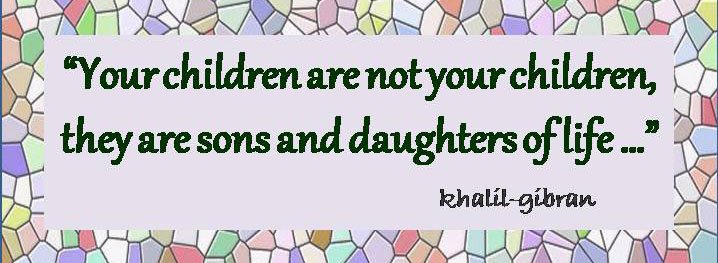
Here the verses of the poet fit very well: "Your children are not your children, they are sons and daughters of life". As parents, love for our children goes through being aware that we are responsible for forming them for life, for giving them the tools that will lead them to integrate and find their way, to be happy, to feel fulfilled in what they are and how they are.
Our expectations, dreams, desires, projections with respect to our children may always be present, but putting them on our children can stifle them and prevent them from revealing their essence, creating strong limitations for them to let out what they really have.

Translated with www.DeepL.com/Translator (free version)
Fuente de imágenes: Portada 1 - 2 - 3 - Frase



MIS REDES SOCIALES



Cortesía de la comunidad

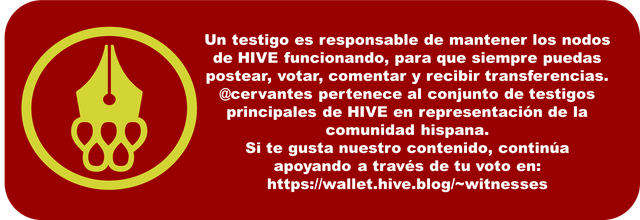
Te invito a apoyar este proyecto como witnes y a formar parte de esta gran comunidad uniéndote a su Discord en el siguiente enlace:
Discord de la comunidad Cervantes


Be Entrepreneur




https://twitter.com/damaryspacheco5/status/1566071747438338055
The rewards earned on this comment will go directly to the people sharing the post on Twitter as long as they are registered with @poshtoken. Sign up at https://hiveposh.com.
Excelente post, felicitaciones 🙋🙋🙋🙋🙋
Gracias por pasar @lindoro
Que triste historia la de Marina y su hijo.
Hay gente que se tapan los ojos ante los acontecimientos que le dan una bofetada en la cara y aún así no reaccionan.
Que lamentableme que aún no vayan a un especialista viendo por lo que pasa su hijo.
Es una historia que la he visto en otras familias y es realmente doloroso.
Buena esa frase. Siempre he dicho que a los hijos hay que criarlos para la vida, porque un día se van a ir de casa y no podemos protegerlos del todo.
Me gustó mucho leer esto amiga @damarysvibra.
Hola @leidimarc sí, el caso de esta familia es conmovedor y parte de su gran problema es que mi amiga no logra ver, ni por un instante, que ella tiene un problema y no solamente el hijo.
En cuanto a los versos del poema: tus hijos no son tus hijos"siempre traté de tenerlo presente en la crianza de ms hijos y aun así cuando mi hija emigró, ya profesional y a vivir con su hermano, a veces me llamaba llorando diciéndome que no quería crecer, que eso de crecer dolía...😧 Gracias a Dios ya superó esa etapa.
Saludos, gracias por pasar y comentar.
Es una lástima que tenga una venda en los ojos, por más que las personas amigas como usted, le quieran hacer ver que necesitan ayuda.
Te entiendo con lo de su hija, también tengo una por fuera, en mi caso es peor, ella no quiso aprender muchas cosas, que la prepararan para la vida, se fue muy rápido de casa y también emigró con apenas 17 años, por allá, eso que ya tiene 20, le ha tocado duro.
Por cierto nosotras si fuimos a psicólogo, pero no sirvió de mucho, el psicólogo le dio la razón a ella y se puso más rebelde.
Igual es mi princesa adorada y ruego a Dios por que tenga buenas oportunidades.